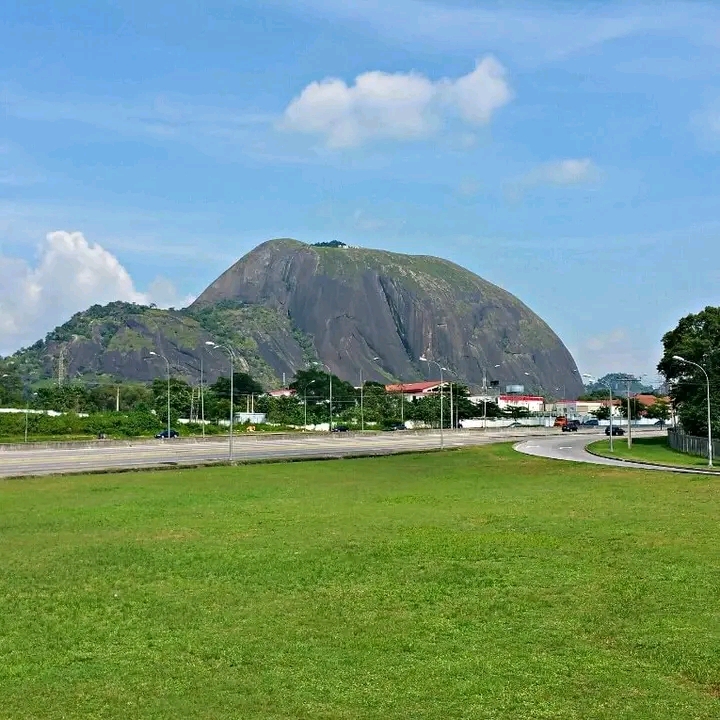
Exploring Local Market Days in New Karu: A Vibrant Hub of Culture and Commerce
Local Market Days in New Karu offer a dynamic immersion into the everyday vibrancy of the Federal Capital Territory. Discover bustling stalls, fresh local produce, and authentic cultural exchanges perfect for travelers eager to experience Nigeria’s lively markets firsthand.
Arrive Early for Cooler Air and Better Selection
Get to the market around 6:30 to 7 a.m. to avoid the afternoon heat and enjoy a quieter shopping experience before the crowd peaks.
Wear Comfortable, Gripping Footwear
The market paths are uneven and dusty. Shoes with good traction will help you maneuver crowded aisles and avoid slipping.
Keep Hydrated and Carry Small Bills
Local vendors often deal in small denominations; carrying a mix of small bills or coins expedites transactions and staying hydrated in the heat keeps your energy up.
Protect Your Belongings Against Pickpockets
The market’s bustle is lively but pickpockets can take advantage of distractions. Use secure bags and keep valuables close at hand.
Exploring Local Market Days in New Karu: A Vibrant Hub of Culture and Commerce
New Karu's market days are not just a commerce event; they pulse at the heart of the Federal Capital Territory's social and economic life. The market vibrates with the energy of traders and buyers negotiating in a dialect of gestures and haggles, surrounded by the bright chaos of colorful stalls overflowing with fresh produce, handcrafted goods, and local delicacies. Arriving early is crucial—by 7 a.m., the air is thick with the scent of spices and earth, mingled with the steady hum of conversation and calls of vendors.
The market sprawls across an open-air space where narrow aisles push you forward, inviting you to explore pockets of activity that showcase everything from farm-fresh yams daring you to try them, to woven baskets that tell stories in their patterns. The terrain is mostly flat but uneven, with dusty walkways interspersed with patches of grass that soften the steps. Footwear that grips is wise—the market demands agility and endurance. Plan to spend at least two to three hours soaking in the energy and sampling foods that vary by season.
Hydrate often; the Federal Capital Territory can press its warmth on you by mid-morning, pushing sweat onto your brow as you navigate throngs of local life fiercely alive around you. The market’s rhythm ebbs and flows with the sun’s arc—visiting earlier means cooler air and quieter corners, but the late morning offers peak interaction, vendors expanding their displays and more dynamic exchanges.
While the market is a commercial hub, it also opens a window into community traditions and daily life. Expect greetings that feel personal, and an invitation—implicit but real—to understand more than just the products. For those with curiosity, local palm wine sellers and spice merchants can reveal tastes that speak of place and heritage. Capture moments of interaction, the glowing faces of artisans, and the cluttered beauty of the stalls when the light is softest at dawn or late afternoon.
For newcomers, a practical approach serves best: bring small bills to ease transactions, keep your bag secured, and remain patient amid the lively jostle. Your experience here is both a walk through culture and a step into the practical pulse of New Karu itself—a modest adventure steeped in daily commerce and human connection, framed by an environment that challenges your senses rather than your stamina.
Nearby Trips
All Adventures
Boat Charters
Water Activities
Adventures near New Karu, Federal Capital Territory
Discover the unique and memorable adventures that make New Karu, Federal Capital Territory special.
Frequently Asked Questions
What are some lesser-known features within the New Karu market?
Beyond the main stalls, side alleys reveal specialized artisans like leatherworkers and traditional potters whose crafts are less visible but rich in cultural story and skill.
Are there local wildlife sightings around the market area?
While the market itself is urban, nearby green belts are home to small bird species such as weaver birds and sometimes agile squirrels that watch from the periphery.
What historical significance does New Karu’s market hold?
New Karu’s market evolved as a central trading post for surrounding villages displaced during the Abuja territorial expansion, serving as a key gathering point for commerce and community connectivity.
How does the market support local environmental efforts?
Many vendors emphasize reusable packaging and local sourcing, reducing long-distance transport and encouraging waste reduction; some groups organize clean-up drives tied directly to market days.
What’s the best way to haggle respectfully in the market?
Approach with a friendly attitude, start by offering about 70-80% of the asking price, and be prepared for playful negotiation without offense—it's part of the cultural exchange.
Can tourists safely photograph the market activities?
Yes, but always ask permission first, especially when photographing vendors closely. Early morning light offers better conditions for capturing vibrant colors and candid moments.
Recommended Gear
Sturdy Walking Shoes
Helps you stay steady on dusty, uneven market paths while managing crowded spaces comfortably.
Reusable Water Bottle
Staying hydrated in the warm FCT climate keeps energy levels steady during busy market hours.
Crossbody Bag or Secure Backpack
Keeps your belongings safe from pickpockets while leaving your hands free for shopping.
Wide-brimmed Hat or Cap
Provides relief from direct sun during early morning or late afternoon shopping sessions.
Local Insights
Hidden Gems
- "Traditional handwoven textile stalls tucked near the market's east side."
- "Quiet corners where local palm wine is freshly tapped and sold."
Wildlife
- "Common sightings of palm squirrels darting along fence lines."
- "Various colorful weaver birds nesting in nearby trees."
History
"New Karu’s market stands as a legacy of the resettlement era stemming from Abuja’s construction, reflecting a fusion of diverse trader communities and traditions."
